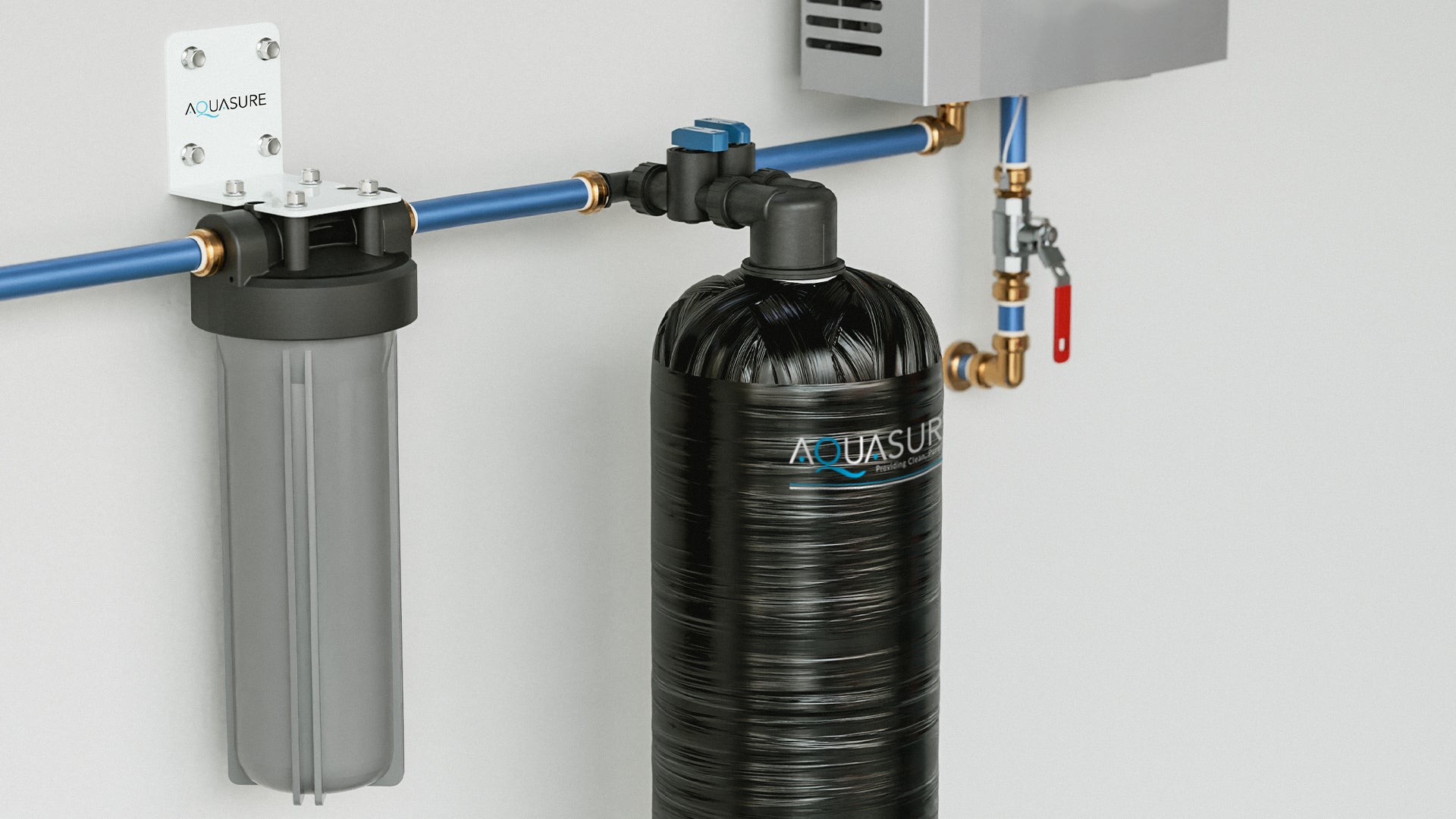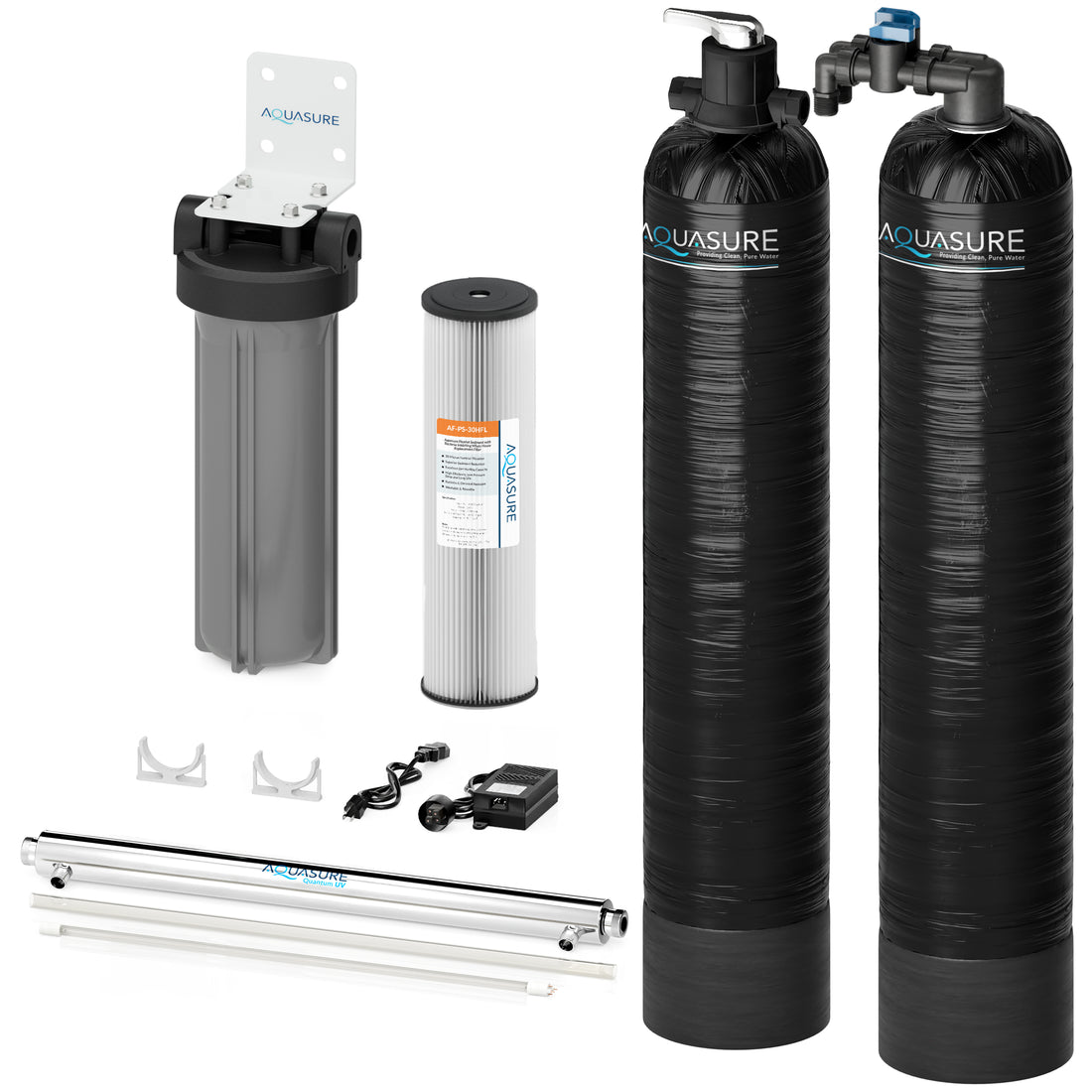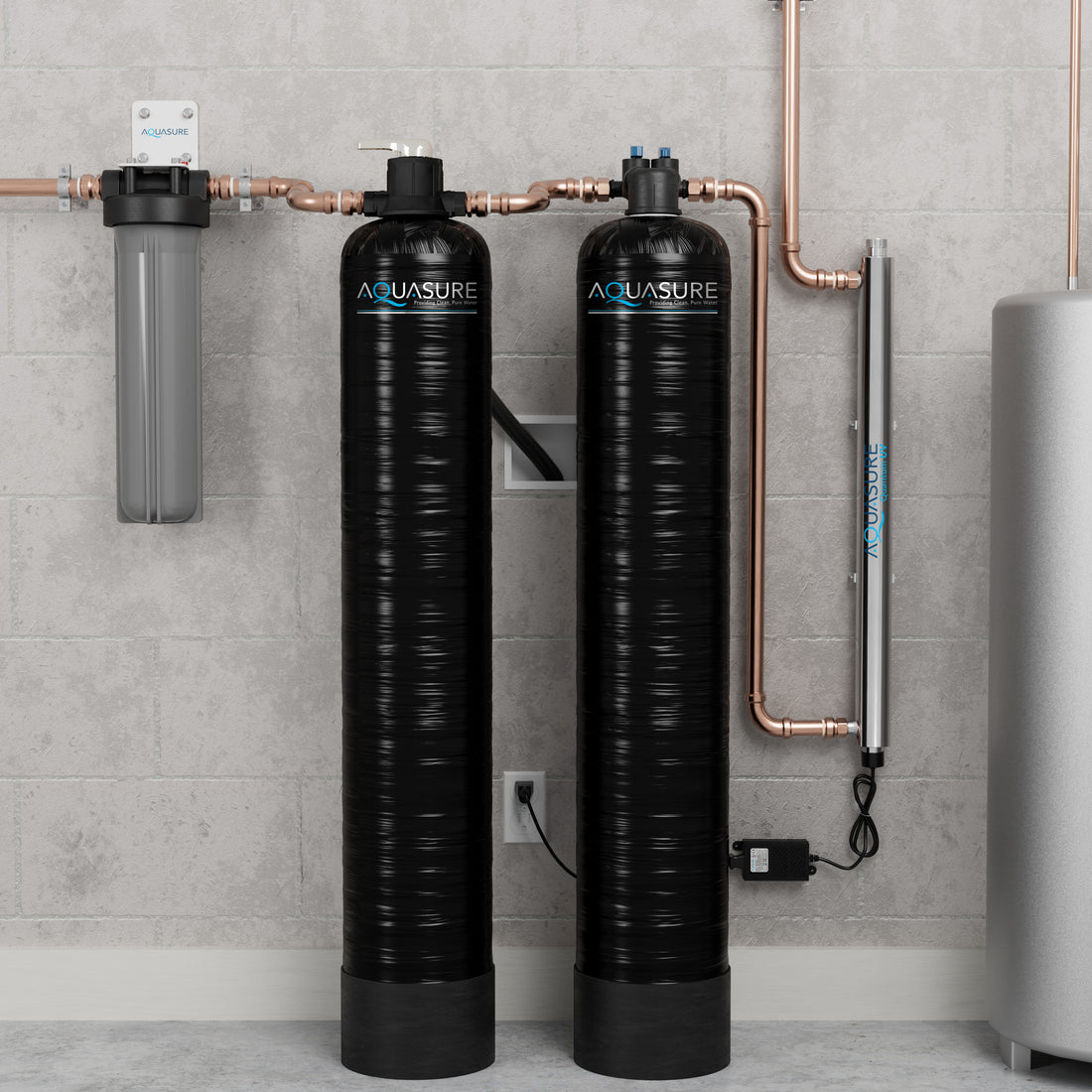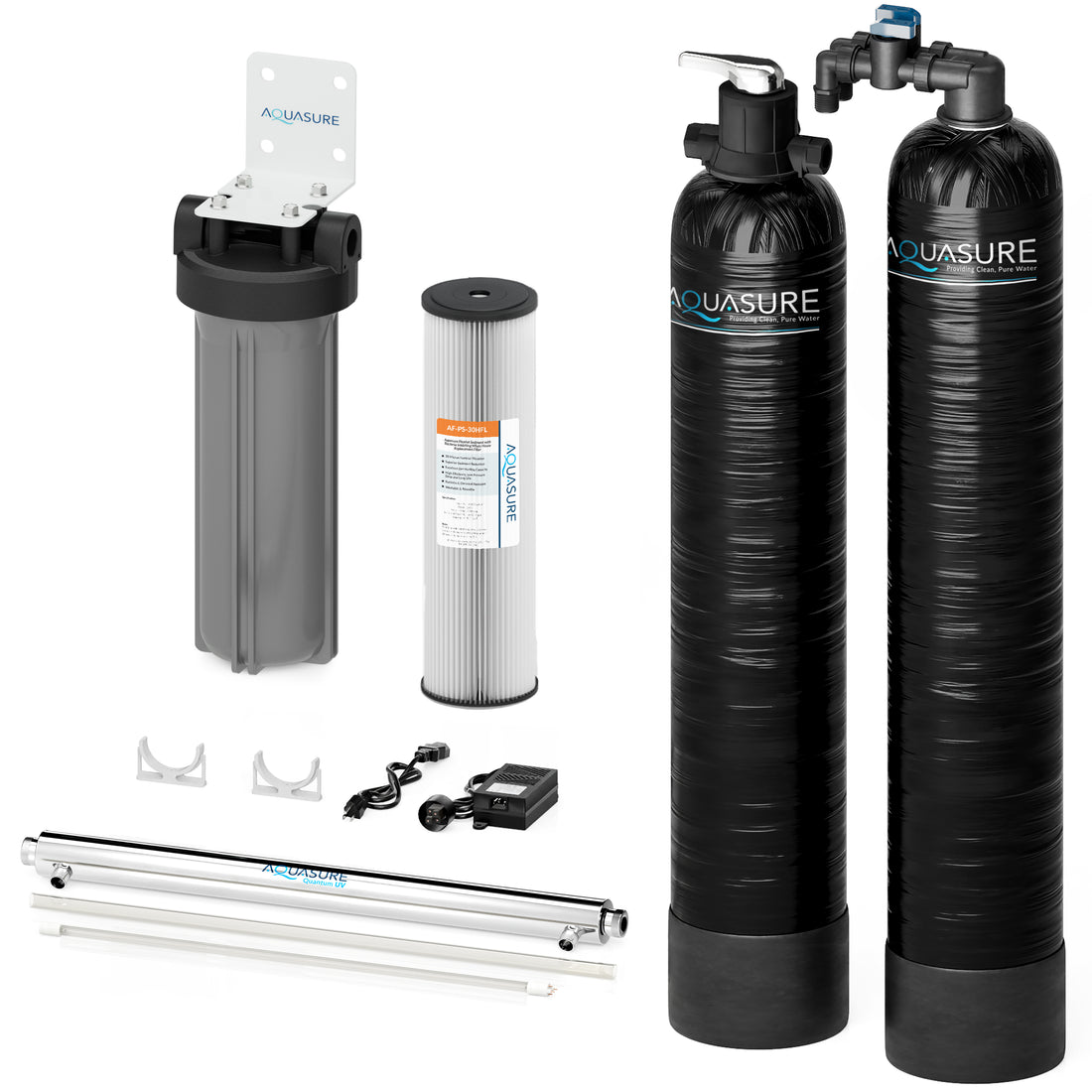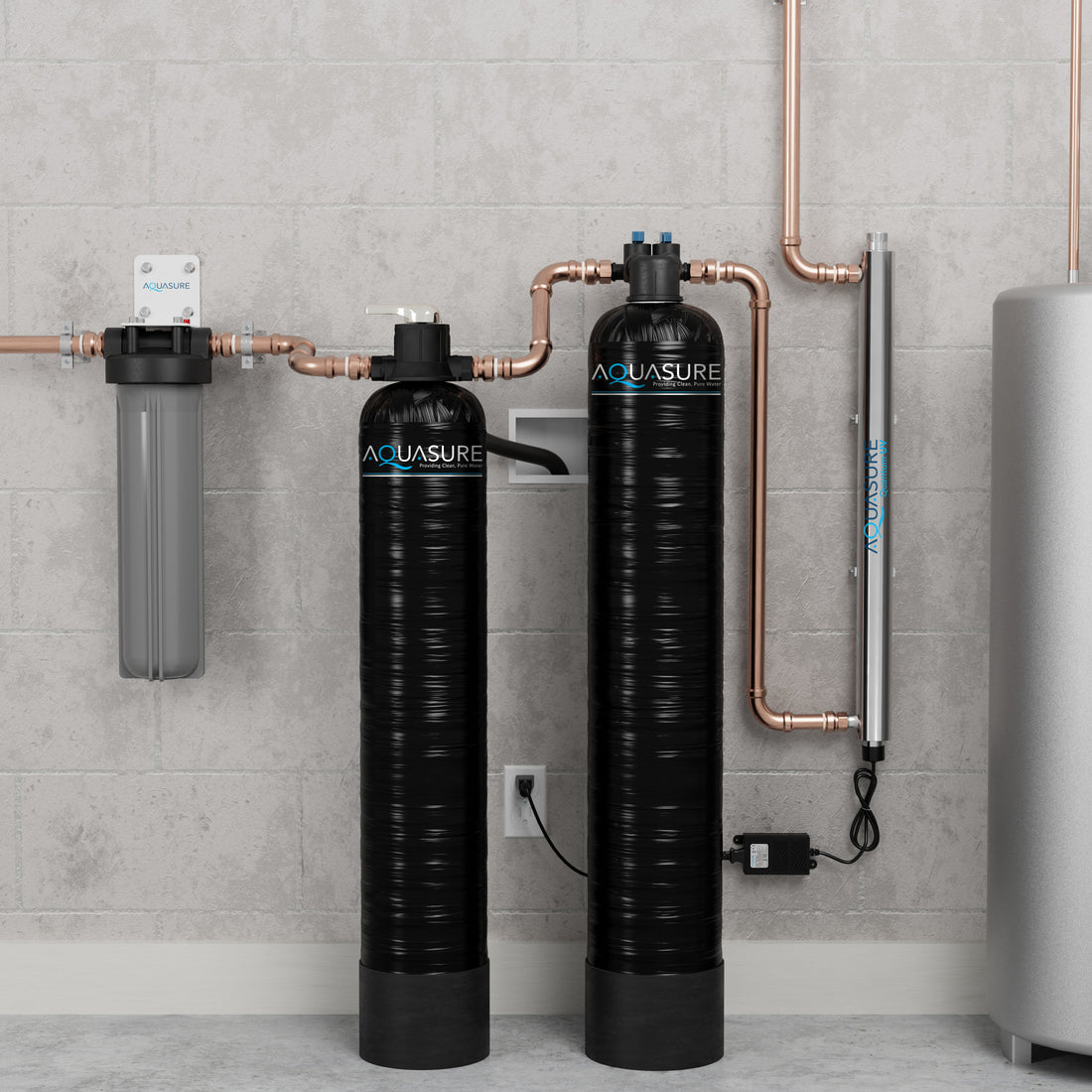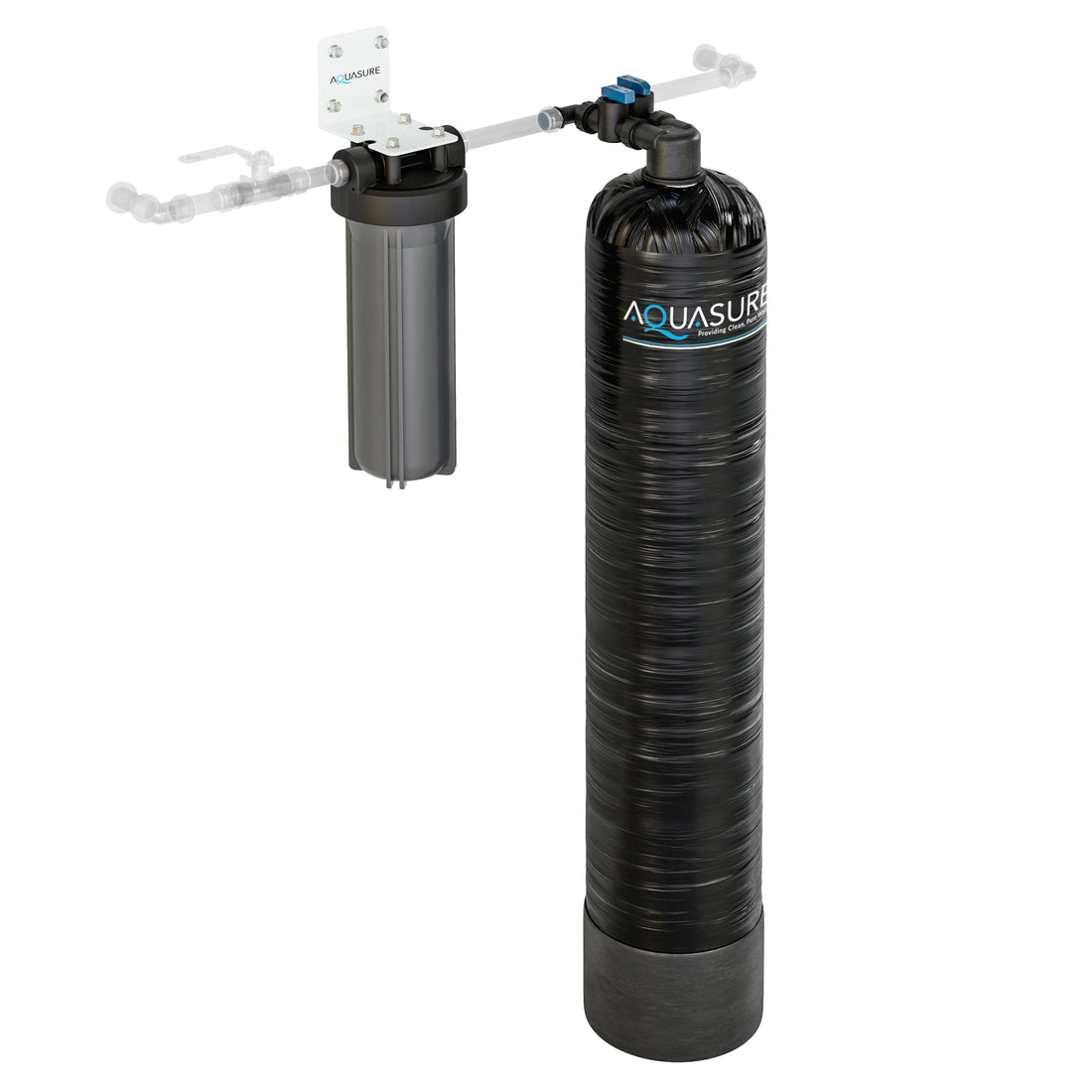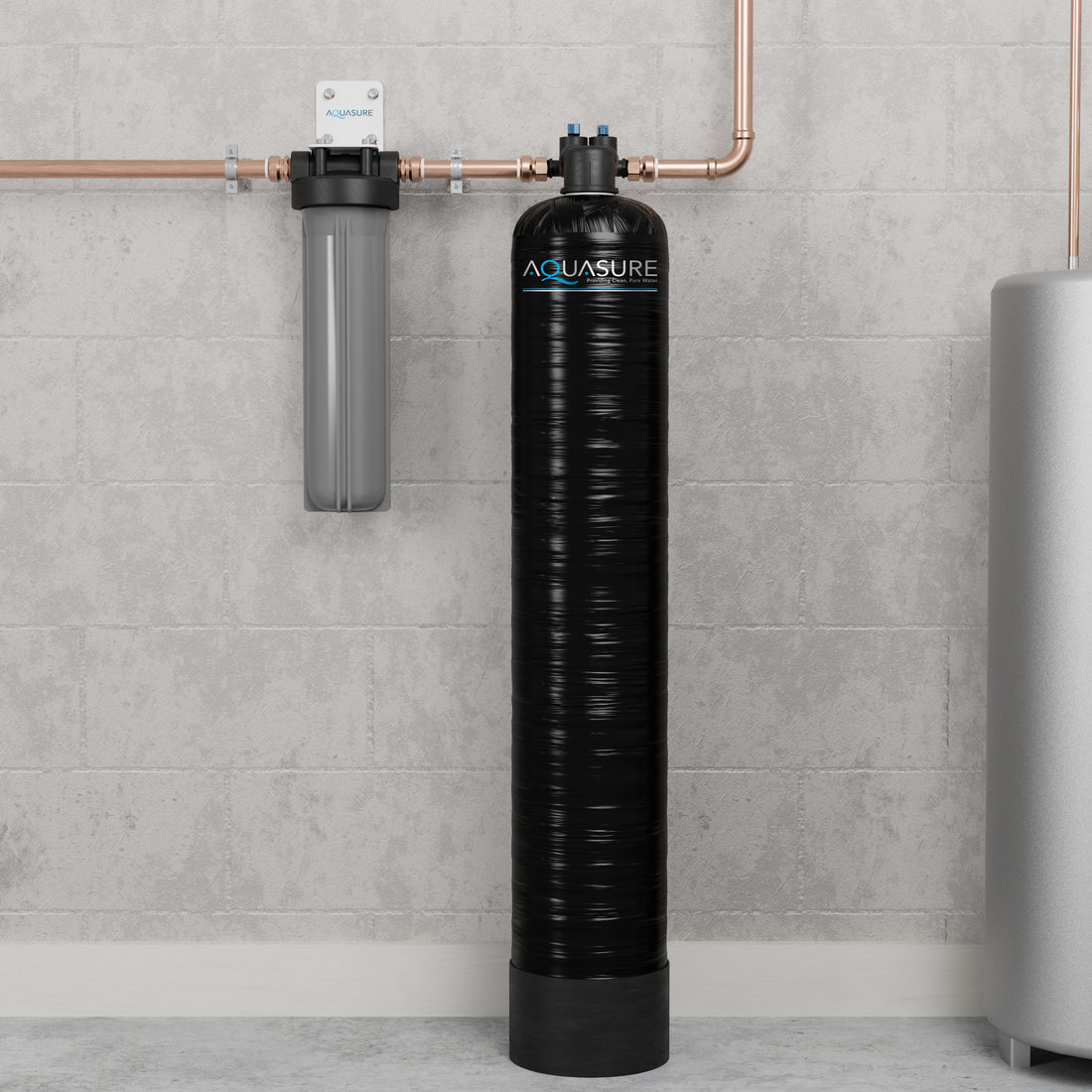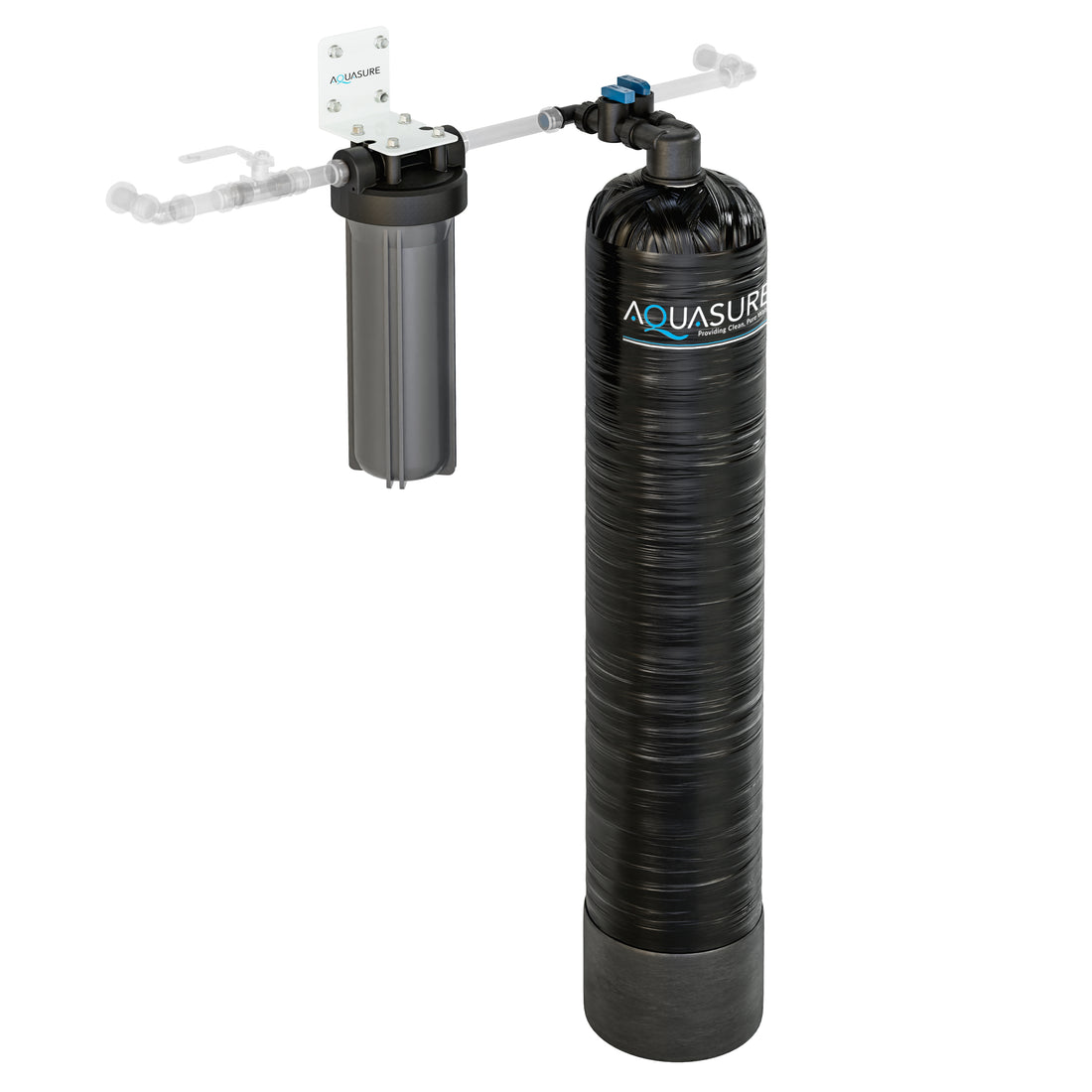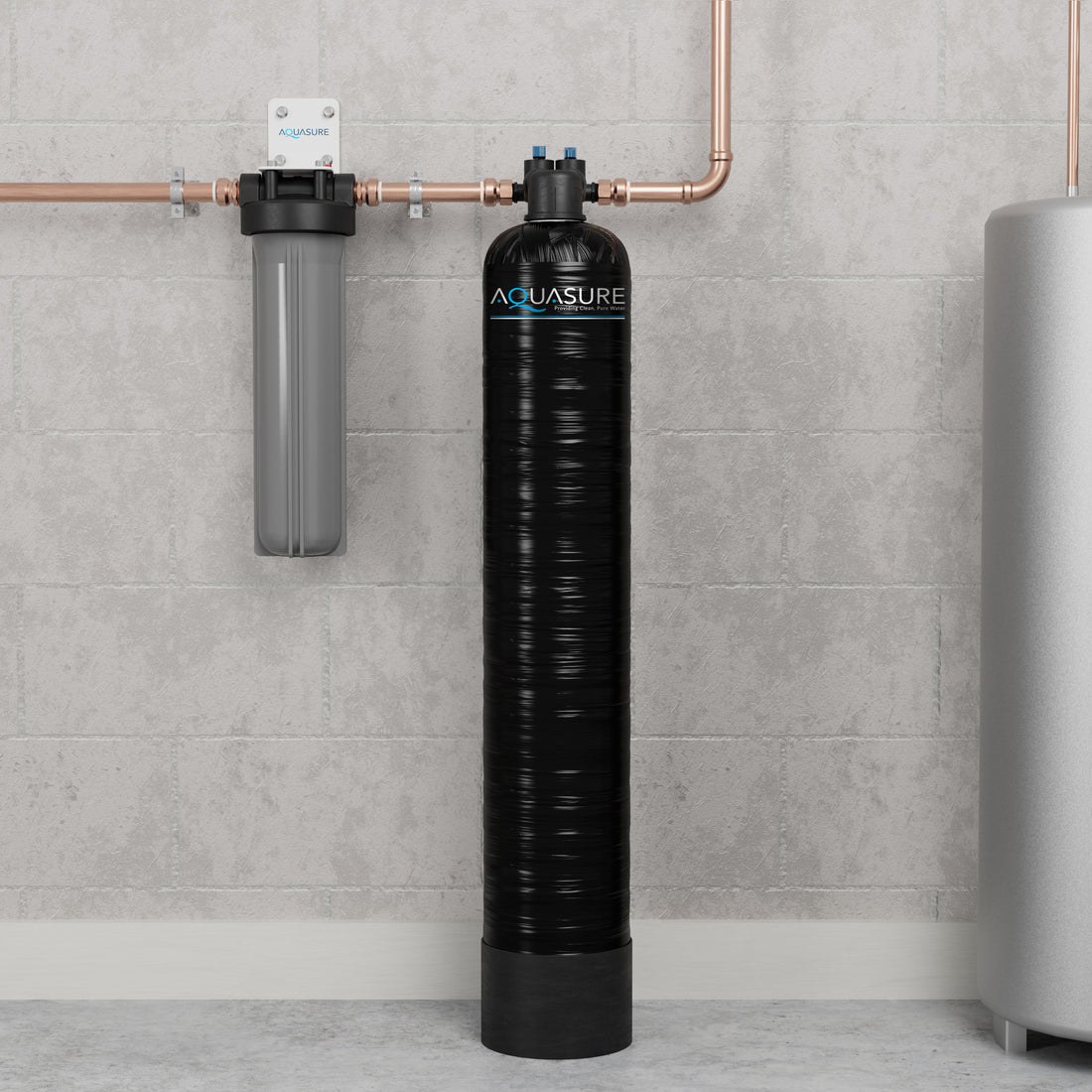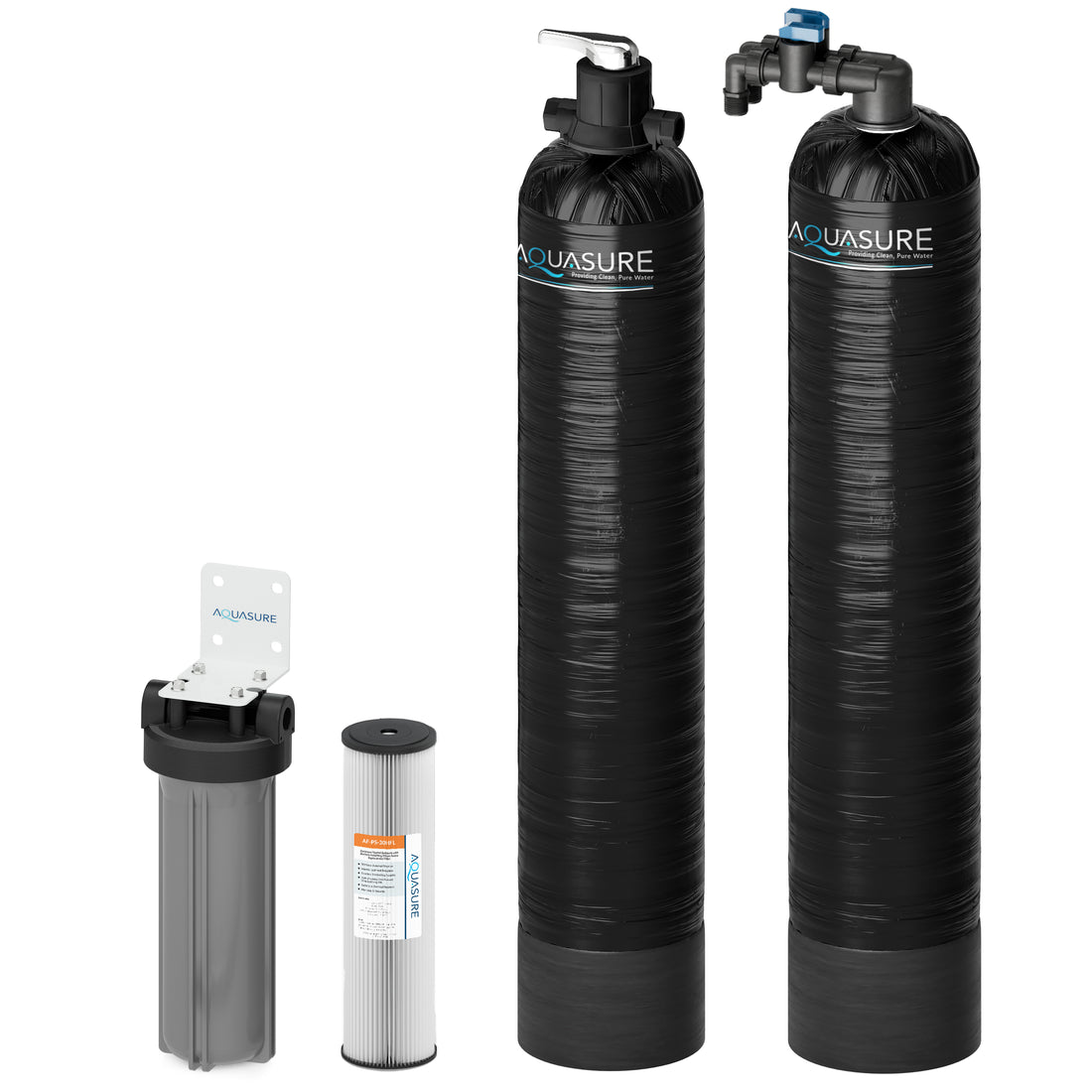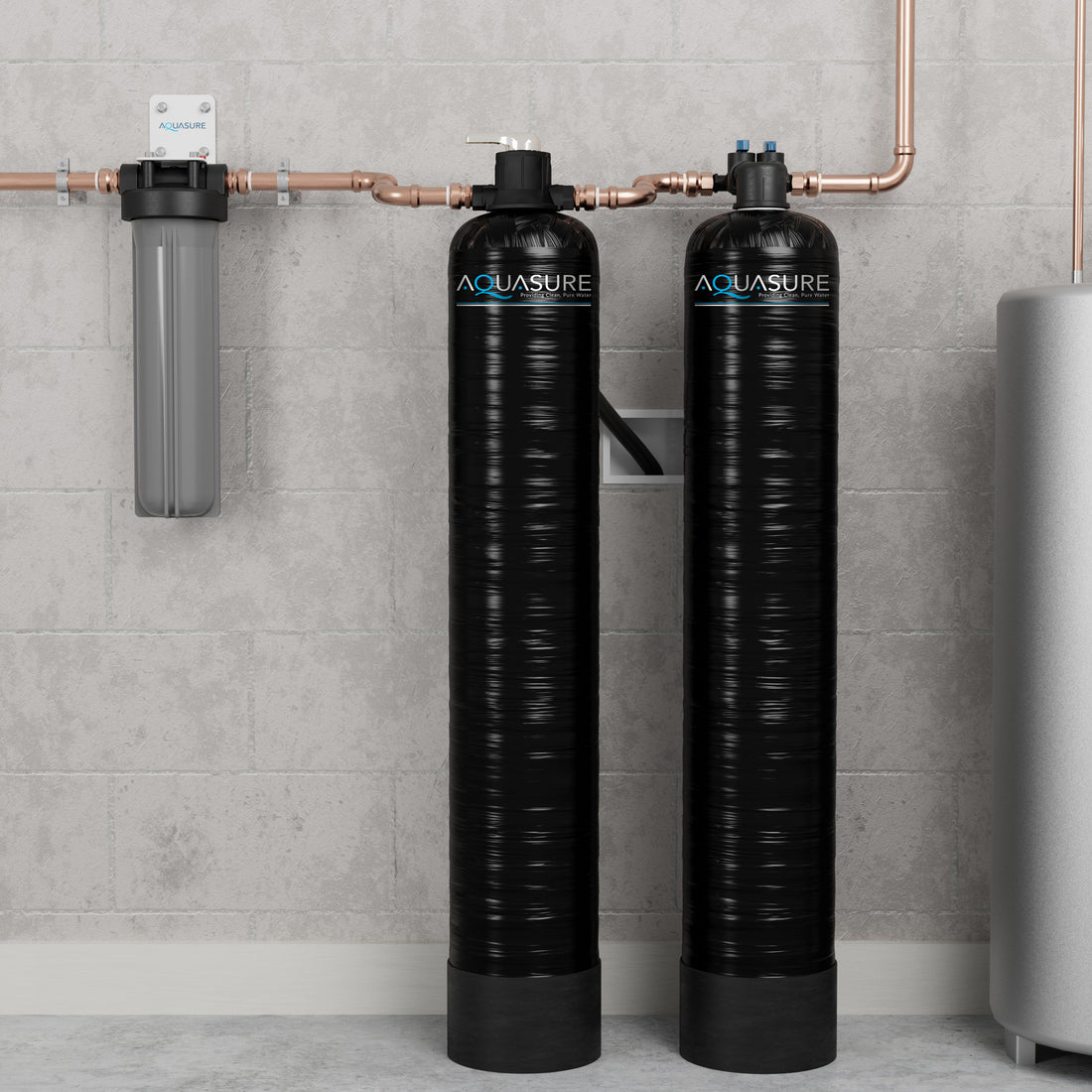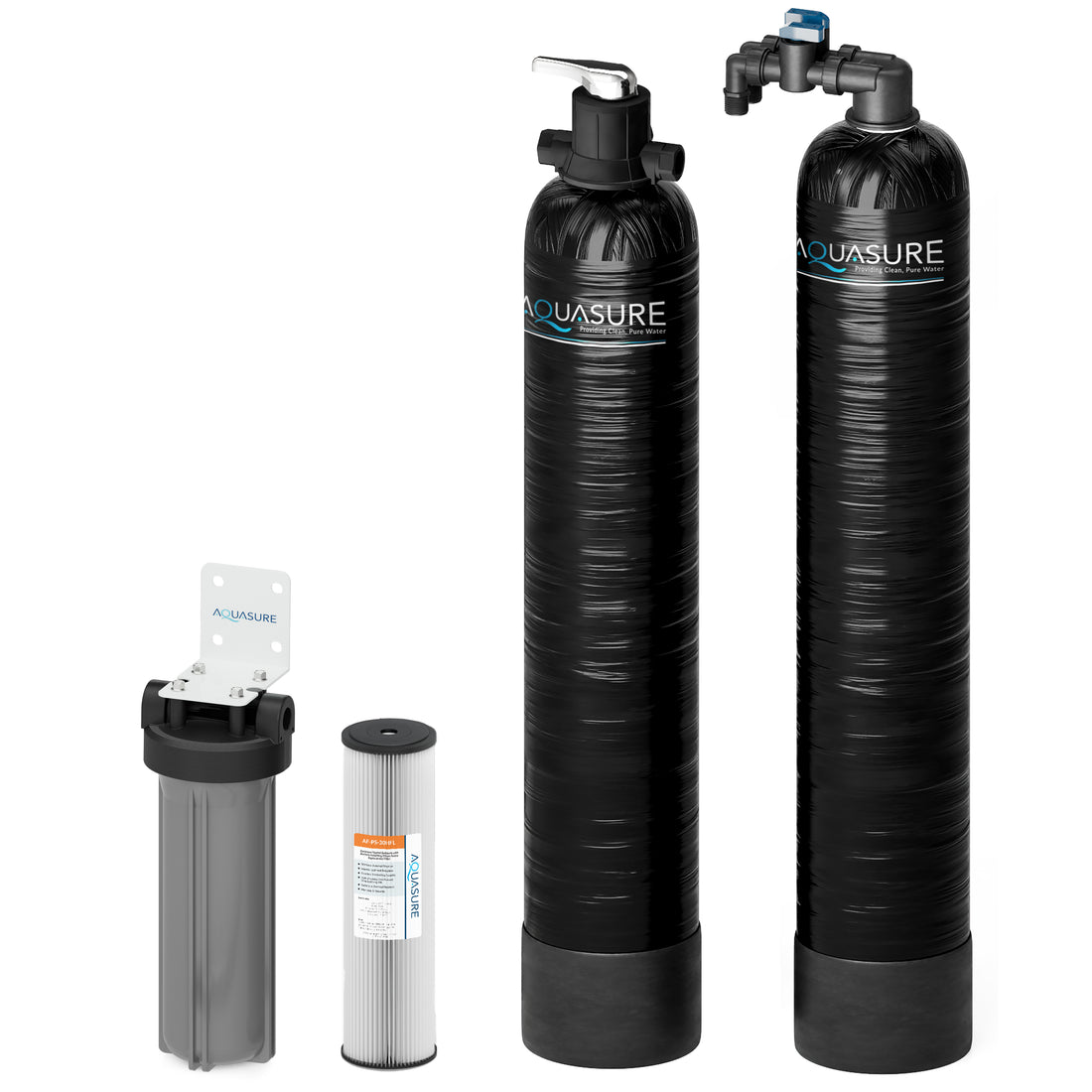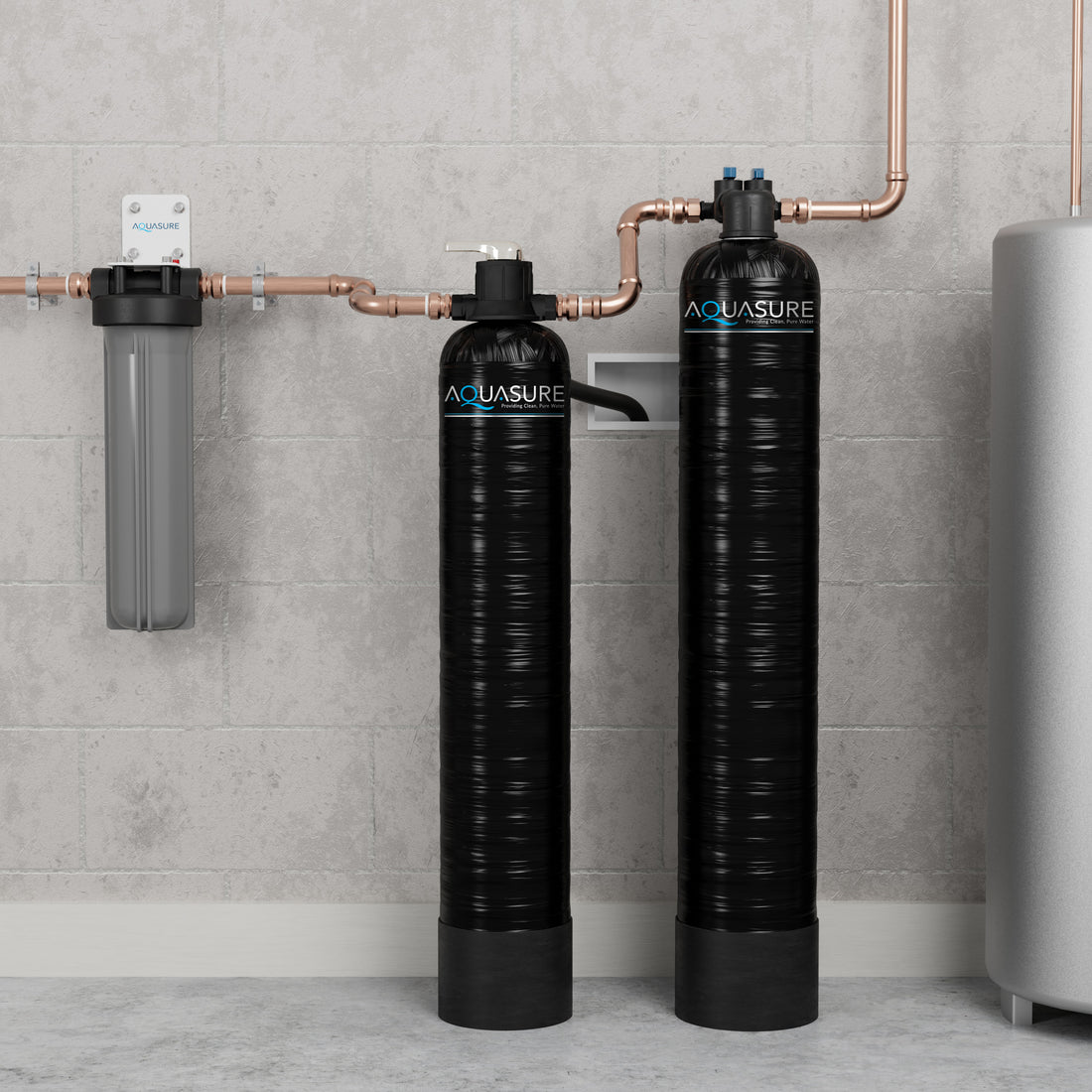The Truth About Salt-Free Water Softeners
The Rising Concern Over Water Quality
Are you tired of dealing with the effects of hard water in your home but worried about the environmental impact of traditional water softeners? You're not alone. The search for eco-friendly, efficient solutions has led many to consider salt-free water conditioners as a viable alternative.
Embark on a journey through the world of salt-free water conditioners, the innovative and eco-friendly alternative to traditional water softening methods. This ultimate guide covers everything from the basics of water hardness to the advanced technology behind salt-free systems, their benefits, installation, and maintenance tips. Perfect for homeowners looking to make an informed decision and enhance their home’s water quality in an environmentally conscious way.
Understanding Water Hardness and Its Effects
Water hardness, caused by minerals like calcium and magnesium, is more than just a nuisance. It can lead to scale buildup in pipes, reduce the efficiency of appliances, and even make soaps and detergents less effective. Before diving into the solution, understanding the problem is crucial.
When it comes to managing hard water, the traditional solution has often leaned towards salt-based water softeners. However, as we become more environmentally conscious and seek healthier, more sustainable living options, salt-free water systems have emerged as an innovative alternative. Unlike their salt-based counterparts, salt-free systems offer a unique set of advantages that address hard water issues without the downsides of salt use. Let's delve into why a salt-free water system might just be the upgrade your home needs.
There's some skepticism about whether salt-free systems are as effective as traditional softeners. However, advancements in technology and positive user experiences have proven that these systems are indeed effective at preventing scale buildup and maintaining the efficiency of water-using appliances. They might not "soften" water in the traditional sense (since they don't remove minerals), but they effectively prevent the negative impacts of hard water.
The Science Behind Salt-Free Water Conditioners
Unlike traditional softeners that add salt to water to remove hardness, salt-free water conditioners, like those in the Aquasure Serene Salt-Free collection, use Template Assisted Crystallization (TAC) to transform minerals into hardness crystals that won’t stick to surfaces. This innovative technology ensures your water is conditioned without the added sodium, making it a healthier choice for your family and the environment.
Delve into the world of Template Assisted Crystallization (TAC), the revolutionary technology behind salt-free water conditioners. By transforming hardness-causing minerals into harmless crystals, TAC ensures these minerals don't stick to your pipes and appliances—without using salt.
Comparing Salt-Free vs. Salt-Based Water Softeners
When it comes to choosing between salt-free and salt-based water softeners, the differences can significantly impact both your household and the environment. Salt-free systems offer a no-salt solution that's not only easier on the environment but also less maintenance-intensive. With no need to replenish salt, and the absence of brine discharge, salt-free conditioners, particularly those from the Serene Salt-Free lineup, present a compelling case for eco-conscious homeowners.
|
Feature |
Salt-Free Water Softeners (e.g., Serene Salt-Free) |
Salt-Based Water Softeners |
|
Operating Principle |
Condition water through physical processes, like Template Assisted Crystallization, preventing scale without removing beneficial minerals. |
Soften water efficiently by exchanging hardness minerals with sodium or potassium, enhancing water quality for various uses. |
|
Maintenance Requirements |
Enjoy the convenience of minimal maintenance, thanks to a system that doesn't require salt or frequent part replacements. |
Benefit from a straightforward maintenance routine, ensuring peak performance through regular salt replenishment and system checks. |
|
Environmental Impact |
Offers an eco-conscious choice with no salt discharge, supporting the health of our waterways and soil. |
Designed with responsible use in mind, with advancements aimed at minimizing environmental impact while ensuring water softness. |
|
Installation Complexity and Costs |
Typically, simpler installation processes lead to potentially lower initial costs, making it an accessible option for many households. |
Precise installation ensures optimal performance, with the system's comprehensive setup offering long-term benefits and efficiency. |
|
Operating Costs |
Experience lower operating costs due to the absence of salt purchases and generally lower energy requirements. |
Efficient operation balances the need for salt with significant benefits in water quality and appliance protection, offering value over time. |
|
Water Usage Efficiency |
Higher water efficiency as the system operates without the need for regeneration cycles, conserving water resources. |
Engineered for effectiveness, with regeneration cycles optimized to use water judiciously while maintaining soft water supply. |
|
Health Considerations |
An excellent option for households preferring no additional sodium in their water, maintaining natural mineral content. |
Provides flexibility in water softening choices, including the use of potassium chloride for those monitoring sodium intake, without compromising on water softness. |
|
Effectiveness in Hard Water Areas |
Exceptionally good at preventing scale buildup, maintaining the natural composition of water while protecting appliances and plumbing. |
Exceptionally effective in transforming hard water into soft, enhancing the performance and longevity of appliances and providing a superior washing and bathing experience. |
|
System Longevity and Durability |
Designed for durability, with fewer mechanical parts and no salt usage, contributing to an extended system lifespan. |
Built to last, with a robust system that, with regular maintenance, combats the challenges of hard water effectively over time. |
|
Water Feel and Soap Efficiency |
Delivers water that retains its natural feel, ensuring minerals essential for health are preserved, with a slight difference in soap lathering. |
Produces luxuriously soft water that significantly improves soap lathering and leaves skin feeling smooth, enhancing daily personal and household cleaning tasks. |
|
Compatibility with Appliances and Plumbing |
Helps prolong the life of appliances and plumbing by preventing scale buildup in an eco-friendly manner, without the use of harsh chemicals. |
Effectively prevents scale buildup, safeguarding appliances and plumbing systems, and is designed to work harmoniously with home infrastructure for optimal performance. |
Why Choose Salt-Free?
Imagine enjoying the benefits of soft water without the downsides, like damage to your appliances and plumbing, and doing so in an eco-friendly manner. Salt-free water systems comply with local environmental regulations, avoiding the bans faced by traditional salt-based softeners due to their salty wastewater. These systems are celebrated for reducing maintenance, enhancing appliance efficiency, and embodying a sustainable choice that resonates with many. Users rave about the noticeable improvements and savings on maintenance, salt, and utility bills, alongside the health benefits of sodium-free water. This approach not only meets practical needs but also aligns with eco-conscious values and health priorities, offering a comprehensive solution for soft, drinkable water.
Benefits of Going Salt-Free
- Eco-Friendly: Say goodbye to salt bags and reduce your environmental footprint.
- Maintenance-Free: Unlike salt-based systems that require regular salt replenishment, salt-free conditioners need minimal maintenance, saving time and effort.
- Environmentally Friendly: They do not discharge salty brine into the environment, making them a more eco-friendly option compared to salt-based softeners.
- No Salt or Chemicals Needed: This means no need to buy, store, or handle heavy bags of salt, and it's better for people on low-sodium diets.
- Scale Prevention: Salt-free conditioners prevent the formation of scale, which is the hard, white buildup that occurs when hard water evaporates and leaves calcium and magnesium minerals behind. This helps protect and extend the life of plumbing and appliances.
- Softer Skin and Hair: Although not a softener, the conditioned water can help to mitigate the drying effects of hard water on skin and hair.
- Improves Appliance Efficiency: By preventing scale buildup, appliances can operate more efficiently, potentially extending their lifespan and reducing energy and repair costs.
- Easy Installation: Salt-free water conditioners often have simpler installation requirements compared to traditional water softeners, making them a convenient choice for many homeowners.
- No Electricity Required: Many salt-free systems operate without electricity, further reducing operational costs and making them more sustainable.
- Cost-Effective: Over time, salt-free conditioners can be more cost-effective due to lower operating costs, no need for salt purchases, and reduced energy consumption by appliances running more efficiently.
- Retains Essential Minerals: Salt-free systems do not remove beneficial minerals like calcium and magnesium from the water, which are important for health.
- Health and Safety: Ideal for homes with individuals on low-sodium diets or those concerned about the health implications of traditional softeners.
These benefits highlight why salt-free water conditioners are considered a practical and sustainable choice for managing hard water issues without the drawbacks associated with traditional water softening methods.
Real-Life Transformations
See the difference with before-and-after images of appliances and plumbing systems that have benefitted from salt-free water conditioning. These visuals not only demonstrate the effectiveness of salt-free systems but also bring to life the potential improvements in your own home.
How Salt-Free Water Conditioners Protect Your Home
By preventing scale buildup, salt-free water conditioners extend the life of your plumbing and appliances. Systems from the Serene Salt-Free collection not only safeguard your home's infrastructure but also promote efficiency, leading to potential savings on energy bills and costly repairs in the future.
Protecting Your Home's Infrastructure
- Prevents Scale Buildup: By transforming hard minerals into non-adhesive crystals, these systems prevent scale from accumulating in pipes and on appliances. This is crucial for maintaining the efficiency and longevity of plumbing systems and water-using appliances like water heaters, dishwashers, and washing machines.
- Maintains Appliance Efficiency: Scale buildup can significantly reduce the efficiency of appliances, leading to higher energy consumption and increased wear and tear. Salt-free conditioners keep appliances running smoothly and efficiently.
- Prolongs Appliance Lifespan: By preventing scale, these systems help extend the life of appliances and plumbing fixtures, reducing the need for repairs or replacements.
Promoting Efficiency and Savings
- Energy Savings: Appliances that operate without the hindrance of scale buildup use less energy. Water heaters, in particular, benefit from this, as scale can act as an insulator, making it harder for them to heat water, thus consuming more energy.
- Reduced Repair and Replacement Costs: By mitigating the primary cause of wear and tear in plumbing systems and appliances (scale buildup), homeowners can expect to see a reduction in the need for costly repairs and premature replacements.
The Serene Salt-Free Collection provide a comprehensive solution for protecting your home’s infrastructure and promoting efficiency. They offer a sustainable, cost-effective alternative to traditional water softening methods, contributing to both the longevity of your home’s plumbing and appliances and potential savings on energy and maintenance costs.
When considering a salt-free water system, evaluate your household water usage, the level of Water Hardness, and specific water quality needs. Not all systems are created equal, so it's crucial to choose a reputable brand that offers robust customer support and a solid warranty.
Key Features to Look for in a Salt-Free Water Conditioner
When browsing the Serene Salt-Free collection, consider key features such as system capacity, flow rate, and the specific needs of your household. The right system will provide optimal water conditioning without compromising on water flow or quality.
- Designed for homes with 1-6+ bathrooms, up to 8 people
- Ideal for suburb and busy downtown locations
- Removes 99% of harmful contaminants
- Leaves in beneficial minerals
- Improves your water quality
- Conditions water without the slippery feel
- Extends life of plumbing and appliances by inhibiting scale build-up
- Does not require salt or electricity to operate
- High flow rate with no noticeable change in water pressure
- 5 Year Limited Warranty when activated online within 60 days
Please note: While our Salt-Free Water Conditioner effectively prevents scale build-up, it may not completely remove hardness minerals from the water like a traditional water softener. However, our salt-free system strikes a balance between scale prevention while preserving essential minerals in your water, leaving you with great-tasting water that feels just the way you like it.
Making the Switch
Ready to make the leap to a healthier, more eco-friendly water conditioning solution? Consider the Aquasure Serene Salt-Free collection, designed to meet the needs of modern homeowners who prioritize both efficiency and environmental responsibility.
Serene Series Collection
Product Selection: Explore our range of salt-free water conditioners, each designed to cater to different household sizes and water usage needs.
Installation and Maintenance:
With straightforward installation and minimal maintenance, transitioning to a salt-free system is easier than you might think.
Installation and Maintenance of Salt-Free Systems

Despite misconceptions, installing and maintaining a salt-free water conditioner, including those from Aquasure, is straightforward. Most homeowners can manage the setup with minimal tools and effort, and maintenance is as simple as periodic checks and filter changes, ensuring your system runs smoothly with little hassle.
Owner’s Manual: Access Your Aquasure Serene Salt-Free Guide
Cost Analysis: Salt-Free Systems vs. Traditional Softeners
While salt-free water conditioners may have a higher upfront cost, the long-term savings on salt purchases, water usage, and appliance maintenance can make them a more economical choice over time. Investing in a system from the Serene Salt-Free collection can lead to significant savings and a notable reduction in your home's environmental impact.
| Cost Analysis | Salt-Free Systems | Traditional Softeners |
| Upfront Costs | Generally have a higher initial purchase price compared to traditional softeners. This is due to the advanced technology used to condition water without salt. | Typically less expensive initially but come with the added cost of installing a drainage system for the salt brine. |
| Ongoing Costs | There are minimal ongoing costs as these systems do not require salt or as much water for regeneration cycles. This leads to savings on salt purchases and water usage. | Incur regular expenses for salt replenishment and use more water because of the regeneration process, which can significantly impact your water bill over time. |
| Maintenance Costs | Often have lower maintenance costs since there's no salt to refill or manage. The technology used is designed to be low maintenance. | Require regular maintenance, including salt replenishment, cleaning of the brine tank, and sometimes replacement of parts worn out by salt corrosion. |
| Environmental Impact | Offer a significant reduction in environmental impact. They do not discharge salty waste into the environment, conserving water and avoiding the pollution associated with salt brine. | Can have a negative environmental impact due to the discharge of salt into sewage systems, which can harm freshwater ecosystems and soil composition. |
Long-Term Savings and Benefits
Investing in a salt-free system, such as those from the Serene Salt-Free collection, can lead to considerable long-term savings. The absence of salt and water purchases, combined with lower maintenance and operational costs, makes these systems more economical over time. Additionally, the reduced environmental footprint of salt-free systems aligns with sustainable living practices, contributing to a healthier planet.
While the initial investment in a salt-free water conditioner may be higher, the long-term savings on operational costs, maintenance, and the positive environmental impact make it a more economical and responsible choice over traditional softeners. The Serene Salt-Free collection, in particular, offers a compelling option for homeowners looking to reduce their environmental impact while enjoying the benefits of softened water.
The Role of Salt-Free Conditioners in Eco-Friendly Home Practices
Incorporating a salt-free water conditioner into your home is a step toward sustainable living. By reducing salt and water usage, you're not only protecting your household appliances and plumbing but also contributing to a healthier planet.
Salt-free water conditioners offer several environmental benefits that contribute to sustainable living and water conservation. Here's a breakdown of the key advantages:
- Reduction in Salt Usage: Traditional water softeners use large quantities of salt to remove minerals from hard water, which can lead to an excess of salt being discharged into the environment. Salt-free conditioners, on the other hand, do not use salt in the conditioning process, thereby reducing the amount of salt released into wastewater systems and ultimately into natural water bodies.
- Water Conservation: Salt-based water softeners require periodic regeneration, a process that uses water to flush and replenish the system's salt. This can waste hundreds of gallons of water each month. Salt-free conditioners do not require regeneration, leading to significant water savings over time.
- Prevention of Salt Pollution: The discharge from salt-based softeners can increase the salinity of freshwater sources, harming aquatic life and potentially affecting agriculture by altering soil composition. By eliminating the use of salt, salt-free conditioners prevent this type of pollution, helping to maintain the health of aquatic ecosystems and the quality of the soil.
- Energy Efficiency: By preventing scale buildup in pipes and on appliances, salt-free water conditioners help maintain efficient water flow and heat transfer. This can lead to lower energy consumption for heating water and prolong the lifespan of plumbing systems and water-using appliances, reducing the need for frequent replacements or repairs.
- Minimal Maintenance Requirements: Salt-free conditioners typically require less maintenance than their salt-based counterparts. This not only reduces the environmental impact associated with producing and transporting salt but also minimizes the overall resource and energy consumption associated with maintaining water conditioning systems.
- Enhancement of Water Reuse Practices: With the growing importance of water recycling and reuse, reducing the salt content in wastewater becomes crucial. Salt-free conditioners produce water that is more compatible with eco-friendly water reuse applications, such as irrigation and landscaping, without the risk of salt accumulation in the soil.
FAQs
Q: Do salt-free water conditioners really work?
A: Yes, they effectively prevent scale buildup without the need for salt or chemicals.
Q: Are salt-free conditioners good for health?
A: Absolutely, especially for those monitoring their sodium intake or seeking a more natural water conditioning method.
Q: How often do I need to maintain my salt-free system?
A: Maintenance is minimal, typically involving only occasional filter changes and system checks.
Q: How long do salt free water softeners last?
A: Protect your home's pipes, plumbing, and appliances from scale buildup without the use of harsh chemicals or salt. New and improved systems can generally last up to 10 years.
Q: Can you run a salt-free conditioner with a water softener?
A: You should not use both a water conditioner and a water softener. Using a water conditioner before a water softener can make the ion-exchange in the water softener ineffective.
Understanding the Limitations of Salt-Free Water Conditioners
While salt-free water conditioners offer a host of advantages, it's essential to acknowledge that no solution is perfect for every situation. Let's explore some of the limitations you might encounter with these systems, ensuring you're fully informed before making a decision.
Challenges with Well Water
One notable drawback of salt-free water conditioners is their performance with well water, which often contains moderate to high levels of iron and manganese. These minerals can interfere with the efficiency of Template Assisted Crystallization (TAC) technology, which is at the heart of salt-free conditioning. Iron, in particular, can coat the TAC media, blocking the crucial nucleation sites needed to create hardness micro-crystals. As a result, in well water heavy with iron and manganese, the effectiveness of salt-free conditioners in preventing scale may be significantly reduced.
The Soft Water Misconception
It's also important to clarify that despite sometimes being referred to as "salt-free water softeners," these systems do not actually soften water in the traditional sense. True soft water, which is free from the minerals that cause hardness, offers benefits such as reduced soap usage and minimized soap scum. However, salt-free conditioners primarily prevent scale buildup without removing the hardness minerals from the water. This means that while they offer significant benefits in reducing scale and extending appliance life, they might not reduce soap usage or eliminate soap scum as effectively as traditional softeners.
Making an Informed Decision
Understanding both the strengths and limitations of salt-free water conditioners is crucial in making an informed decision that best suits your home's water quality needs. While these systems offer a more eco-friendly and maintenance-free alternative to traditional softeners, they may not be the best fit for every situation, particularly in homes with well water high in iron and manganese or for those seeking the complete range of soft water benefits.
Before choosing a water treatment solution, consider testing your water to determine its mineral content and consulting with a professional to discuss the most effective options for your specific circumstances. Remember, the goal is to improve your home's water quality in a way that aligns with your environmental values, maintenance preferences, and lifestyle needs.
Choosing a salt-free water conditioner, such as those from Aquasure's Serene Salt-Free collection, offers a multitude of benefits ranging from environmental friendliness to maintenance ease and health advantages. By understanding the technology, comparing your options, and selecting a system that meets your needs, you can enjoy softened water without the drawbacks of traditional softeners. Embrace the change and contribute to a healthier home and planet.
Join the Conversation
In our journey toward healthier, more sustainable living, choosing a salt-free water system is a step in the right direction. By opting for an eco-friendly, low-maintenance, and cost-effective solution to hard water, we not only benefit our homes and wallets but also contribute to the well-being of our planet. If you're ready to make the switch, remember to research and select a system that best fits your home's specific needs.
Have you experienced the benefits of salt-free water conditioning firsthand, or do you have questions about making the switch? Share your thoughts, experiences, and inquiries in the comments below. Your insights not only enrich our community's knowledge but also help others make informed decisions about their water conditioning needs.


